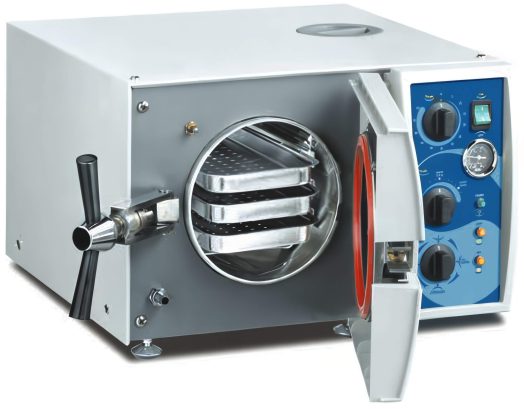Autoclaves are essential devices used for sterilization across various industries. By using high temperatures and pressures, these machines effectively eliminate harmful microorganisms, ensuring safety and quality. This article explores the key features, applications, benefits, and types of autoclaves in detail.
What is an Autoclave?
An autoclave is a sealed chamber that uses pressurized steam to sterilize equipment and materials. The combination of high temperature (typically 121°C or 134°C) and pressure (about 15-30 psi) creates an environment that kills bacteria, viruses, and spores. Autoclaves are crucial in settings where sterilization is vital for safety and efficacy.
Key Features of Autoclaves
1. High-Pressure Capability
Autoclaves are built to operate safely at high pressures, which is essential for achieving the temperatures needed for effective sterilization. This capability allows them to penetrate porous materials thoroughly.
2. Temperature Control
Precise temperature regulation is vital for sterilization. Modern autoclaves have advanced control systems that maintain the correct heat throughout the sterilization cycle, ensuring consistent results.
3. Safety Mechanisms
Many autoclaves come equipped with safety features such as pressure relief valves and alarms. These mechanisms protect both the equipment and the operator from overheating or over-pressurization.
4. User-Friendly Interfaces
Autoclaves often have intuitive controls and digital displays, making them easier to operate. Users can select different sterilization cycles based on the items being treated.
5. Versatile Applications
Autoclaves can sterilize a wide range of materials, including metal instruments, glassware, and some plastics, depending on the type of autoclave and sterilization method used.
Applications of Autoclaves
1. Industrial Applications
In manufacturing, industrial autoclaves are vital for processes requiring precise sterilization and pressure treatment. For example:
- Chemical Industry: Autoclaves are used for high-pressure reactions to produce substances like dyes and specialty rubbers.
- Wood Industry: They pressure-treat wood to enhance durability and resistance to decay.
- Composite Materials: Used in the aerospace and automotive industries, autoclaves help produce strong and lightweight composite materials.
- Vulcanization of Rubber: Autoclaves are essential for heating rubber with sulfur, improving its elasticity and strength.
2. Medical and Healthcare Settings
In healthcare, autoclaves are crucial for sterilizing instruments:
- Sterilizing Medical Instruments: They ensure surgical tools and dental instruments are free from pathogens.
- Infection Control: Autoclaves help prevent the spread of infections, maintaining a safe environment for patients.
- Chemical Sterilization: They can also use chemicals for heat-sensitive items, ensuring thorough sterilization without damage.
- Waste Management: Autoclaves sterilize medical waste before disposal, reducing contamination risks.
3. Laboratory Research
In labs, autoclaves help maintain sterile conditions:
- Sterilizing Equipment: Autoclaves sterilize glassware and culture media to prevent contamination.
- Biohazard Waste Disposal: They safely sterilize biohazardous waste, protecting public health and ensuring compliance with regulations.
- Maintaining Research Integrity: By eliminating contaminants, autoclaves help ensure accurate and reproducible results.
Types of Autoclaves
Different types of autoclaves cater to specific sterilization needs:
1. Steam Autoclaves
The most common type, steam autoclaves use pressurized steam for sterilization, effectively killing a wide range of microorganisms.
2. Chemical Sterilizers
These autoclaves use agents like hydrogen peroxide or ethylene oxide gas for heat-sensitive materials, making them ideal for healthcare settings.
3. Vacuum Autoclaves
Equipped with a vacuum pump, these autoclaves remove air before sterilization, ensuring thorough treatment, especially for complex items.
4. Tabletop Autoclaves
Compact and designed for smaller spaces, tabletop autoclaves are suitable for sterilizing smaller instruments and equipment.
Benefits of Autoclaves
Autoclaves offer numerous advantages:
Effective Sterilization
They provide reliable and consistent sterilization, achieving high kill rates for microorganisms.
Time and Cost Efficiency
Autoclaves facilitate quick sterilization, saving time and reducing labor costs.
Environmentally Friendly
Steam autoclaves use water and heat, minimizing the reliance on harsh chemicals and their environmental impact.
Versatility
Autoclaves can handle various materials, making them suitable for different applications.
Improved Compliance
Regular use of autoclaves helps organizations adhere to industry regulations and safety standards.
Auxo Medical: Your Autoclave Solution
Autoclaves are vital tools across industries, ensuring proper sterilization and maintaining safety standards. From healthcare to research and manufacturing, they play a crucial role in preventing infections and upholding quality protocols. Their versatility, effectiveness, and efficiency make autoclaves indispensable in modern practices.
Auxo Medical is a leading provider of autoclave and sterilization equipment, meeting the stringent demands of healthcare and research sectors. Our advanced sterilization solutions ensure the highest standards of safety and reliability.
Explore our extensive product offerings, including autoclaves, sterilizers, and ultrasonic cleaners. For maintenance and repair services, contact us at (888) 728-8448. With Auxo Medical, your sterilization needs are in expert hands, safeguarding critical environments and promoting optimal performance.


